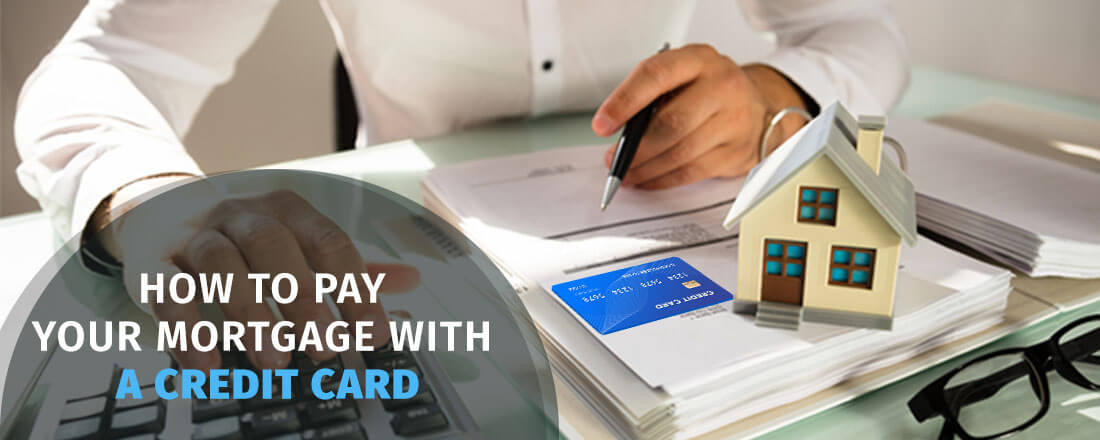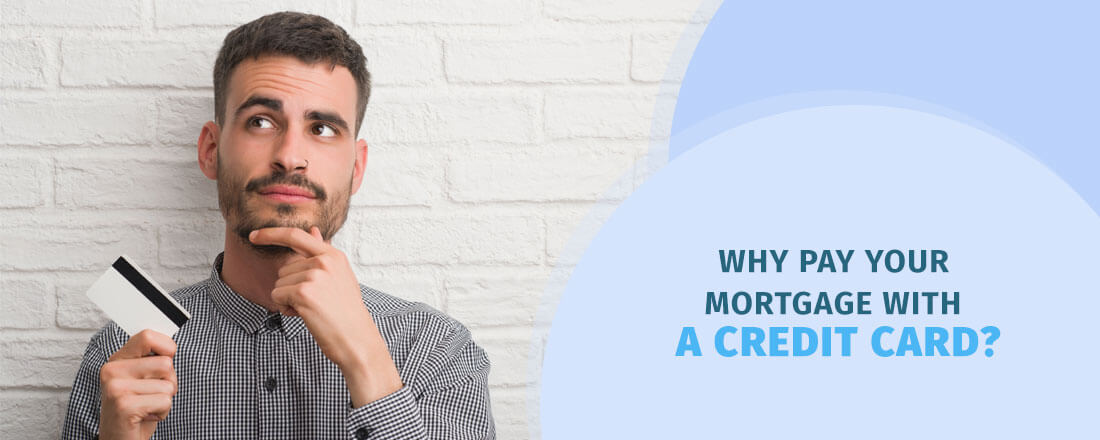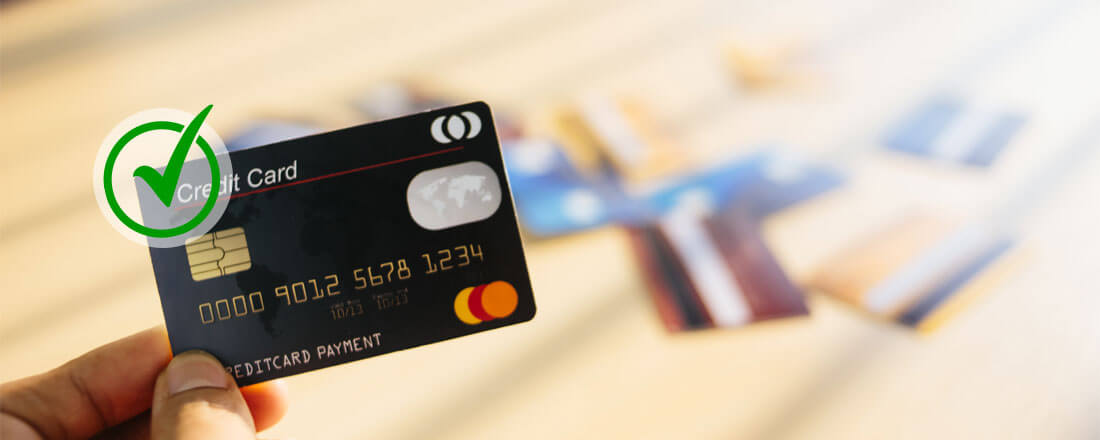
Anyone who owns a
But it’s the big, ongoing expenses that mean the most, since, obviously, they help you rack up
Personally, I have my life arranged so that cable, internet, mobile phone and other monthly and quarterly expenses automatically hit my two
This article will cover
- Why Pay Your Mortgage With a Credit Card?
- Not All Credit Cards Allow Mortgage Payments
- The Easiest Way to Pay a Mortgage With a Credit Card
- Other Risks to Consider When Paying a Mortgage With a Credit Card
But the big expense everyone always wants to know about is their mortgage or rent.
“Can I pay my mortgage with my credit card?” Or, if you’re not a homeowner, “Can I pay my rent with a credit card?” The short answer is “yes.” The longer answer is “maybe … but maybe not.”
Read on to find out what you need to know about how to pay your mortgage with a credit card…
Why Pay Your Mortgage With a Credit Card?
I can think of two primary reasons you would want to pay a mortgage with a

1. You’re Chasing a Big Signup Bonus
Credit-card companies regularly offer monster-sized
2. You’re Close to Earning Elite Status
Some of us get very close to earning elite status with various
Some airline- and hotel-affiliated rewards cards offer elite status for spending a certain amount of money in a year on their branded
In most cases, paying your mortgage with a credit card will likely not be enough on its own to push you past the goal line, though that can go a long way in helping you get there.
Two examples to consider:
- JetBlue Plus Card: You can earn Mosaic status after spending $50,000 on the card in a year. With that, you get waived cancellation and change fees, free checked bags, priority security lines and boarding, and complimentary in-flight alcoholic beverages. If your mortgage or rent is $1,000 a month or more, you’re almost a quarter of the way to elite status in a year. Combined with other expenses on the card, and you could easily reach your goal.
- Citi® / AAdvantage® Executive World Elite Mastercard® : You earn 10,000 EQMs (Elite Qualifying Miles) after spending $40,000 in the first year. AA’s lowest tier elite status – Gold – requires 25,000 EQMs, which gets you complimentary upgrades (if available) on flights of 500 miles or less, a 40% elite-mileage bonus, complimentary preferred seats, and one free checked bag. Mortgage payments can go a long way to helping you reach the spending requirement for achieving Gold status.
As good as that might sound, however, this is where we run into some obstacles when paying a mortgage with a credit card.
Not All Credit Cards Allow Mortgage Payments
Financial companies are not very keen on mortgage payments by credit card because they frown on the use of debt to pay debt, which is exactly what paying a mortgage on a credit card amounts to.
You are, in effect, “debt shifting” because technically you haven’t repaid anything. You are reducing the debt of your mortgage by increasing the debt on your credit card. It’s a zero-sum game that financial companies don’t like.

So, quite often either your card issuer or your mortgage lender will say no to any request to pay your mortgage with your
Thus, the first place you need to start your quest is you card issuer, the company that owns or services you mortgage, or, if you’re a renter, your landlord or management company. If they say “no,” then you have to find another approach (and there is one I’ll mention in a moment).
Most will say no to your request because of the costs they bear. Credit-card companies charge processing fees to the businesses that accept credit cards, and landlords, lenders and apartment management companies don’t necessarily want to lose as much as 3.5% of your payment to a fee they’ll pay for accepting a credit-card payment.
Consider the fees major credit-card networks impose:
| Network | Average Credit Card Processing Fees |
|---|---|
| MasterCard | 1.55% - 2.6% |
| Visa | 1.43% - 2.4% |
| Discover | 1.56% - 2.3% |
| American Express | 2.5% - 3.5% |
For that reason, finding a lender or landlord that accepts mortgage payments by credit card is a challenge. Mortgages initiated or serviced by Chase, for instance, cannot be paid directly by credit card. Many lenders are the same.
And even if you find a lender willing to accept a credit card for a mortgage or rent payment, that doesn’t mean your credit-card issuer, or the credit-card network it’s on, will play along.
Bank of America is a hard “no” for paying your mortgage payment with your BankAmericard.
Wells Fargo credit cards, however, can be used to pay a mortgage – so long as the mortgage lender accepts credit cards for payment.
Visa and American Express both prohibit their networks from processing mortgage payments made by credit card (debit and prepaid-card payments, however, are allowed, since neither are a debt-for-debt transaction).
Rental payments are often viewed differently because they’re not regarded as debt, since you’re paying for a service (the right to occupy a dwelling) rather than repaying a legal debt.
Nevertheless, in many instances we still end up back at “no” when it comes to paying rent with a credit card because the landlord or management company doesn’t want to shoulder the processing fee.
But all is not lost. You still have ways of paying a mortgage with a
The Easiest Way to Pay a Mortgage With a Credit Card
Third-party payment services will typically allow you to pay your mortgage with your credit card – though there is a catch. (This information is generally the same if you want to pay your rent with a credit card.)
A number of such companies exist, but only one – Plastiq – lets you pay a mortgage with a credit card. To negate the debt-for-debt issue, Plastiq delivers an electronic payment to a lender or, in some cases, cuts a physical check that it mails to the lender.

But Plastiq will only work for mortgages if you’re paying with a Discover card or Mastercard.
And if you want to use a third-party payment service for mortgage payments, there’s another, meaningful consideration: Fees of as much as 3% of your payment mean you are adding to the cost of your mortgage. If you pay, say, $1,250 a month, you’ll be throwing away an extra $37.50, and I’m not convinced that’s the wisest use of cash in the travel-reward game.
You must earn cash back at greater than 2.5% to 3% for this to make any sense, really.
That said, the Capital One Savor Cash Rewards card might make sense at the moment because it’s offering a $500 cash bonus after you spend just $3,000 in the first three months. Your mortgage or rent would probably cover most or all of that spending requirement. And depending on which third-party payment service you’re using, you will come out ahead as long as your rent is under $1,666 a month (with Plastic), and less than $1,388 with the others in this chart:
| Company | Credit Card Payment Fee | Cards Accepted for Rental Payments | Cards Accepted for Mortgage Payments |
|---|---|---|---|
| Plastiq | 2.50% | American Express, Discover, Mastercard, Visa | Discover, Mastercard |
| Radpad | 2.99% | American Express, Discover, Mastercard, Visa, Apple Pay | N/A |
| Rentshare | 2.99% | American Express, Discover, Mastercard, Visa | N/A |
| RentMoola | 2.99% | American Express, Mastercard, Visa | N/A |
| Venmo | 3.00% | Discover, Mastercard, Visa | N/A |
For those seeking a business credit card, the Chase Ink Business Cash card also offers a $500 cash-back bonus after spending $3,000 in the first three months. The Capital One Spark Cash for Business card offers the same $500 for $4,500 in spending in the first three months.
The Chase Ink Business Preferred card can also be a smart way to go. The current sign-up bonus is 80,000 Chase Ultimate Rewards points for $5,000 in spending over the first three months. You can use those points for travel (obtaining free tickets or hotel nights worth well more than the fees you paid to Plastiq or others … or you can turn those 80,000 reward points into $800 worth of Chase statement credits. The math works if your monthly mortgage or rent is less than $2,667 (using Plastiq), or less than $2,222 for the others.
Typically, business owners using a business credit card can use third-party payment services as well.
Other Risks to Consider When Paying a Mortgage With a Credit Card
1. DO NOT Use a Cash Advance to Pay Your Mortgage or Rent
It’s easy to use your credit card for a cash advance, and then you use that cash to pay your mortgage (and then repay your credit card at the end of the month). But don’t!

Or at the very least, understand the very real risks you face.
Whether you pull money from your credit card through ATM withdrawal or those convenience checks credit-card issuers are always sending in the mail, you’ll be charged a cash advance fee that’s often in the neighborhood of 5% percent of your transaction amount. Going back to our $1,250 monthly payment, that’s a $62.50 charge every month. You’re not likely to recoup those costs with any
Moreover, cash advances typically incur a higher interest rate, and do not offer a grace period as with your daily spending for
So, honestly, paying a mortgage with a cash advance from your credit card is a poor financial decision. Don’t do it.
2. You Might Miss Your Payment Deadline
Depending on when you authorize a third-party payment service to pay your mortgage or rent payment, you could miss the payment deadline.

Consider this warning from Plastiq: If you select a recipient in our system, they will be funded by ACH/EFT (electronic bank transfer) in 2-3 business days. If your recipient is manually added, they will be funded by check in 5-7 business days.
This arrangement, thus, is not conducive to last-minute payments.
If you don’t arrange for your third-party provider to make a payment in time, your mortgage lender or landlord will almost certainly ding you with a late-payment fee that can be tens of dollars or even $100 or more, depending on the language in your mortgage or rental agreement.
3. The Impact on Your Credit Score
Finally, you must be absolutely sure you have enough available credit on your card to afford the mortgage or rent payment and the fees. Otherwise, your credit-card issuer will decline the transaction, meaning your payment will likely now be late, hitting you with those late-payment fees.

You also need to be aware of the fact that paying your mortgage with a credit card will increase your credit utilization, which, in turn, will impact your credit score. This can be particularly problematic if you don’t have a high credit limit. Yes, your score will recover once you repay the debt, but if you allow those charges to accumulate for whatever reason, your credit score will be impacted negatively until you reduce your credit utilization.
The Bottom Line…
Paying a mortgage with a credit card is, if nothing else, convenient.
And given the options these days to accumulate points and miles and other
But the process isn’t as easy as you might hope, and it comes with a certain set of risks that you must keep in mind before pursuing this strategy.
That said, assuming your lender/landlord/credit-card company is OK with the process, and you understand the fees and how to mitigate them, them go ahead and pay your mortgage with a
It can get you to your dream vacation more quickly.
We want to know: Do you pay your mortgage with a credit card?
If so, which one, and what challenges, if any, do you face?
Let us know in the comment section below.
